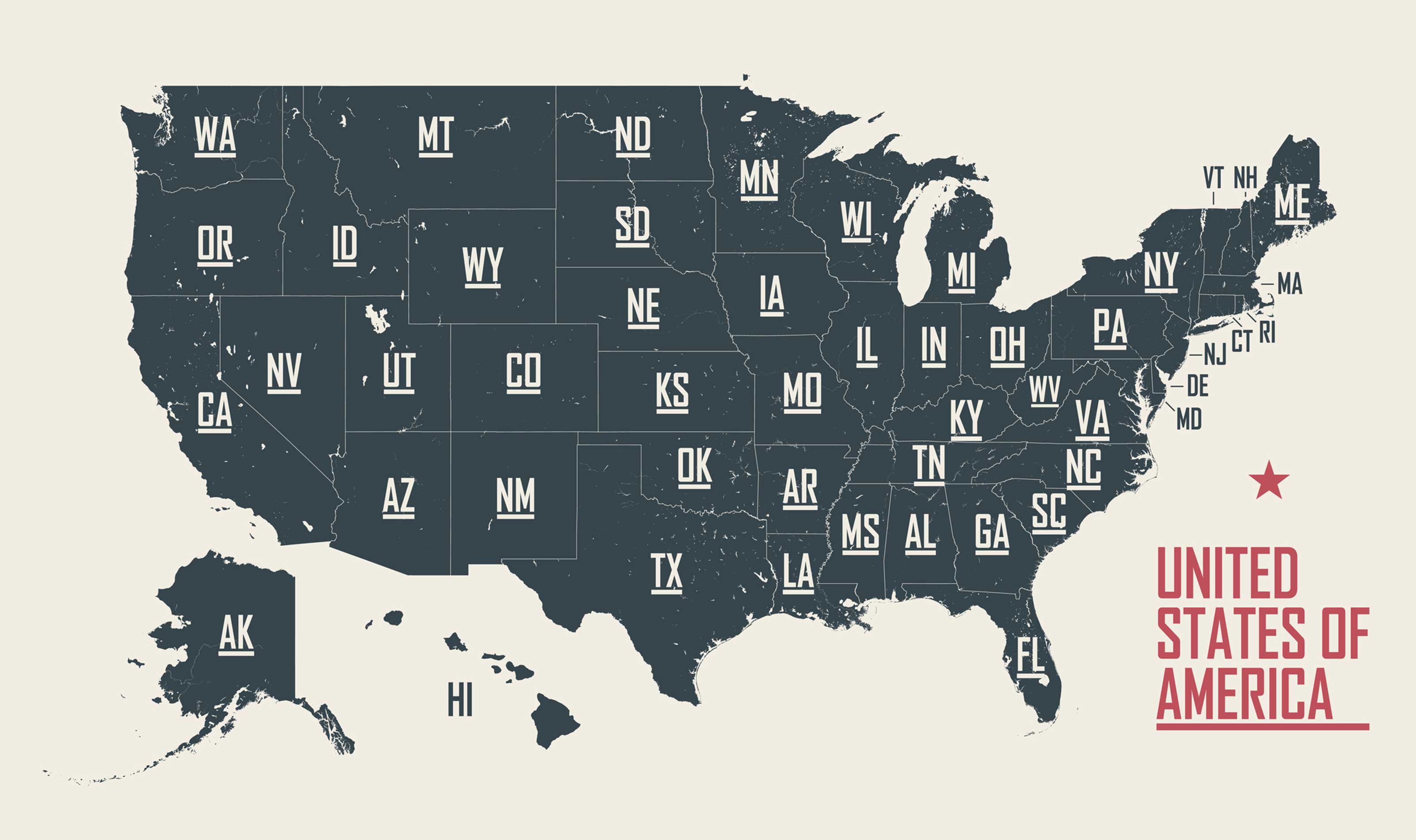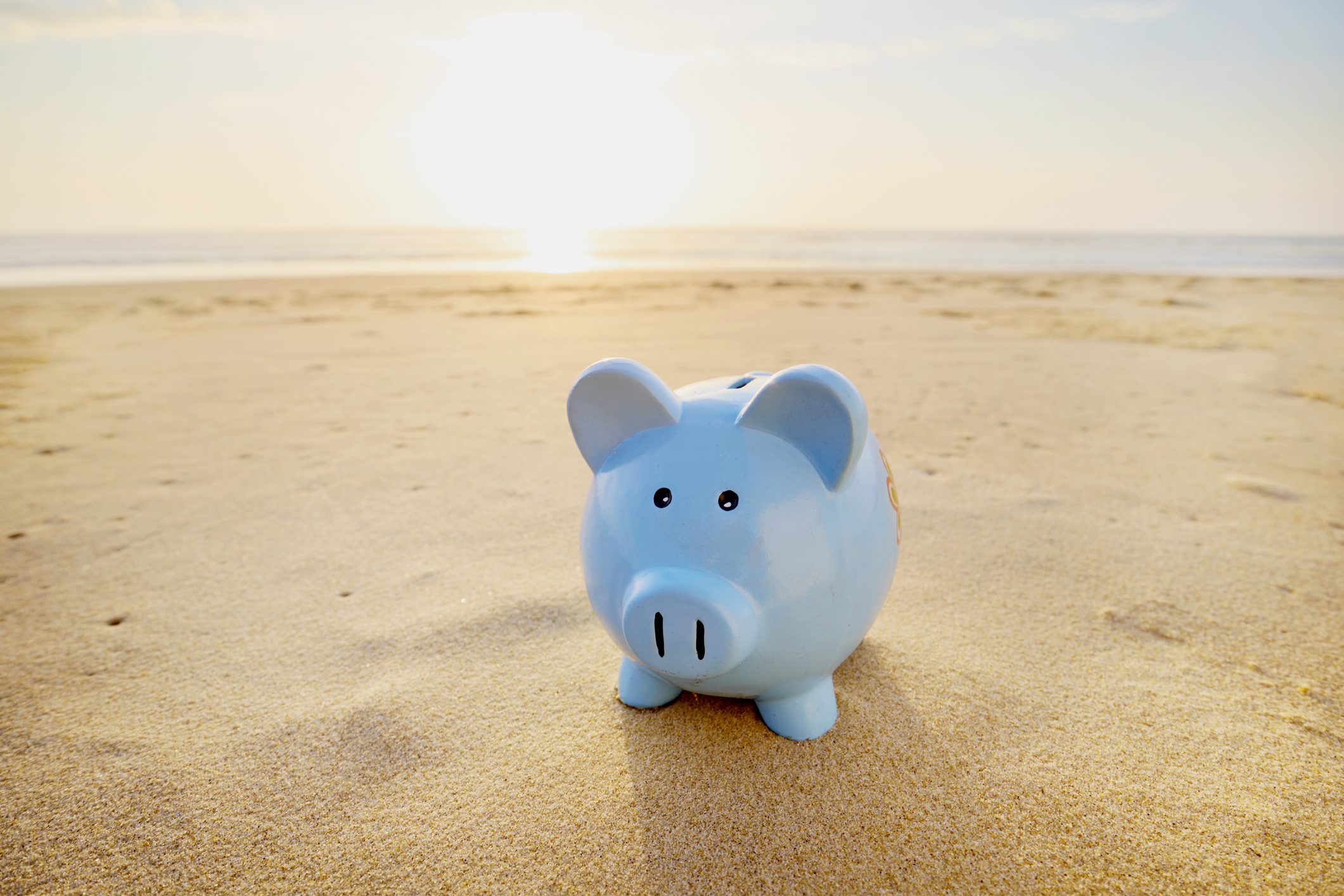10 Best States to Relocate to in 2024
What are the best states to relocate to? New Hampshire and Wyoming lead the list of the best states to live in with the best mix of jobs, home prices, quality of healthcare and more, study shows.


Profit and prosper with the best of Kiplinger's advice on investing, taxes, retirement, personal finance and much more. Delivered daily. Enter your email in the box and click Sign Me Up.
You are now subscribed
Your newsletter sign-up was successful
Want to add more newsletters?

Delivered daily
Kiplinger Today
Profit and prosper with the best of Kiplinger's advice on investing, taxes, retirement, personal finance and much more delivered daily. Smart money moves start here.

Sent five days a week
Kiplinger A Step Ahead
Get practical help to make better financial decisions in your everyday life, from spending to savings on top deals.

Delivered daily
Kiplinger Closing Bell
Get today's biggest financial and investing headlines delivered to your inbox every day the U.S. stock market is open.

Sent twice a week
Kiplinger Adviser Intel
Financial pros across the country share best practices and fresh tactics to preserve and grow your wealth.

Delivered weekly
Kiplinger Tax Tips
Trim your federal and state tax bills with practical tax-planning and tax-cutting strategies.

Sent twice a week
Kiplinger Retirement Tips
Your twice-a-week guide to planning and enjoying a financially secure and richly rewarding retirement

Sent bimonthly.
Kiplinger Adviser Angle
Insights for advisers, wealth managers and other financial professionals.

Sent twice a week
Kiplinger Investing Weekly
Your twice-a-week roundup of promising stocks, funds, companies and industries you should consider, ones you should avoid, and why.

Sent weekly for six weeks
Kiplinger Invest for Retirement
Your step-by-step six-part series on how to invest for retirement, from devising a successful strategy to exactly which investments to choose.
In spite of high mortgage rates and lean inventory, people are still packing up their belongings and moving to a new neighborhood, a new town or a new state. What are the best states to relocate to, when it comes to safety and quality of living?
If you're thinking of relocating this year, consider New Hampshire, Wyoming, Virginia, Rhode Island and Wisconsin, which lead the most recent list of the best states to move to, according to immigration law experts Shoreline Immigration.
The firm analyzed data on job openings, quality of healthcare and schools, average house prices, the rate of violent crime and average salaries in each state to identify the top 10 states to take up residence — for living at its best.
From just $107.88 $24.99 for Kiplinger Personal Finance
Become a smarter, better informed investor. Subscribe from just $107.88 $24.99, plus get up to 4 Special Issues

Sign up for Kiplinger’s Free Newsletters
Profit and prosper with the best of expert advice on investing, taxes, retirement, personal finance and more - straight to your e-mail.
Profit and prosper with the best of expert advice - straight to your e-mail.
Here's a look at the best states to live in.
What are the best states to relocate to?
Here's a list of the 10 best states to relocate to, according to Shoreline Immigration's report.
1. New Hampshire
New Hampshire, the live free or die state, is the fifth-smallest state by area and the 10th least-populous state in the country. There is no personal income tax and no general sales tax either. The average salary is $74,663. That's 18.9% higher than the national average of $62,777. New Hampshire also has the lowest violent crime rate — including serious offenses such as homicide, robbery, and aggravated assault.
2. Wyoming
Wyoming, the cowboy state, has the lowest population of all the 50 states. In fact, more people live in Denver, Colorado, than in all of Wyoming. It has the highest quality of schools when considering factors such as graduation rates and the number of students per teacher. Wyoming's average salary is $71,342, which is 13.6% higher than the national average.
3. Virginia
Virginia is home to the world's largest naval base and has the second-highest concentration of tech workers, after California. Virginia is home to the largest office building in the world — the Pentagon. It has the fourth-highest quality of schools out of the top ten states, and the fourth-highest quality of healthcare — considering the cost of healthcare, access to healthcare, and the health of residents. Virginia also has the lowest annual private health insurance premiums in the country at $5,172 — 49.5% below the national average in America.
4. Rhode Island
The Ocean State is the smallest and the second most densely-populated state in the nation. The oldest restaurant in the United States — the White Horse Tavern in Newport — was established in 1763 and is still operating today at total capacity. Rhode Island has the highest quality of healthcare in the nation, alongside Iowa. It also has the third-lowest rate of violent crime in the top 10 states. With twelve colleges and universities, higher education is one of the state’s major industries.
5. Wisconsin
The Badger State is home to the Wisconsin Dells, which boasts the largest number of water parks in a single area in the world. It was also in Ripon, Wisconsin, that the Republican Party was founded. Wisconsin has the lowest average home price in the top five states at $290,926, 18% below the national average of $354,886. It also has the second-highest quality of schools.
6. Connecticut
In 1901, Connecticut was also the first state in the United States to pass a law establishing a speed limit for automobiles. The average salary in Connecticut is $84,972, 35.3% higher than the national average and the highest average salary in the top 10 states. Connecticut also has the second-lowest violent crime rate in the top ten at 150 per 100,000 people.
7. North Dakota
Out of the top 10 states, the Peace Garden State has the third-highest level of job openings per 100,000 people at 3,613, 10.4% above the national average. North Dakota has the lowest average house price of the top ten states at $254,258. It also has a place in the top 10 because the total cost of housing, food, child care, transportation, health care, taxes, and other necessities is 11.4% lower than the U.S. average.
8. Utah
The Beehive State has the highest level of job openings per 100,000 people — 3,984 — and the third-highest school quality rating in the top ten list. The median household income in Utah is $79,133, ranking it 12th in the nation. Utah also ranks No. 1 in the nation for GDP growth. Salt Lake City is a regional center of finance and trade, and many large enterprises have offices there.
9. Minnesota
The Land of 10,000 Lakes has the third-highest quality of healthcare out of the top 10 states, alongside New Hampshire, with Rochester the home of the world-famous Mayo Clinic. In July 2023, the unemployment rate in Minnesota was only 3%. Minnesota’s average salary is $68,010, or 7.6% more than the national average. Minnesota is also one of the best states for education. Minnesota has 90,000 miles of shoreline, more than California, Florida and Hawaii combined.
10. Pennsylvania
The Keystone State is the 5th most populous state in the U.S. Philadelphia is the state’s largest city and home to Independence Hall and the Liberty Bell. In 2022, the median price of a home was $203,800, which is 37.9% less than the national average of $257,268, and the average rent was $979 per month. The Philadelphia Stock Exchange, now owned by Nasdaq Inc., is the oldest stock exchange in the United States.
Related Content
Profit and prosper with the best of Kiplinger's advice on investing, taxes, retirement, personal finance and much more. Delivered daily. Enter your email in the box and click Sign Me Up.

For the past 18+ years, Kathryn has highlighted the humanity in personal finance by shaping stories that identify the opportunities and obstacles in managing a person's finances. All the same, she’ll jump on other equally important topics if needed. Kathryn graduated with a degree in Journalism and lives in Duluth, Minnesota. She joined Kiplinger in 2023 as a contributor.
-
 Quiz: Do You Know How to Avoid the "Medigap Trap?"
Quiz: Do You Know How to Avoid the "Medigap Trap?"Quiz Test your basic knowledge of the "Medigap Trap" in our quick quiz.
-
 5 Top Tax-Efficient Mutual Funds for Smarter Investing
5 Top Tax-Efficient Mutual Funds for Smarter InvestingMutual funds are many things, but "tax-friendly" usually isn't one of them. These are the exceptions.
-
 AI Sparks Existential Crisis for Software Stocks
AI Sparks Existential Crisis for Software StocksThe Kiplinger Letter Fears that SaaS subscription software could be rendered obsolete by artificial intelligence make investors jittery.
-
 We Retired at 62 With $6.1 Million. My Wife Wants to Make Large Donations, but I Want to Travel and Buy a Lake House.
We Retired at 62 With $6.1 Million. My Wife Wants to Make Large Donations, but I Want to Travel and Buy a Lake House.We are 62 and finally retired after decades of hard work. I see the lakehouse as an investment in our happiness.
-
 I'm an Opportunity Zone Pro: This Is How to Deliver Roth-Like Tax-Free Growth (Without Contribution Limits)
I'm an Opportunity Zone Pro: This Is How to Deliver Roth-Like Tax-Free Growth (Without Contribution Limits)Investors who combine Roth IRAs, the gold standard of tax-free savings, with qualified opportunity funds could enjoy decades of tax-free growth.
-
 I'm a Real Estate Investing Pro: This Is How to Use 1031 Exchanges to Scale Up Your Real Estate Empire
I'm a Real Estate Investing Pro: This Is How to Use 1031 Exchanges to Scale Up Your Real Estate EmpireSmall rental properties can be excellent investments, but you can use 1031 exchanges to transition to commercial real estate for bigger wealth-building.
-
 My Spouse and I Are Saving Money for a Down Payment on a House. Which Savings Account is the Best Way to Reach Our Goal?
My Spouse and I Are Saving Money for a Down Payment on a House. Which Savings Account is the Best Way to Reach Our Goal?Learn how timing matters when it comes to choosing the right account.
-
 The High Cost of Sunshine: How Insurance and Housing Are Reshaping Snowbird Living
The High Cost of Sunshine: How Insurance and Housing Are Reshaping Snowbird LivingThe snowbird lifestyle is changing as insurance and housing costs climb. Here’s how retirees are adapting and where they’re choosing to go.
-
 How to Turn Your 401(k) Into A Real Estate Empire — Without Killing Your Retirement
How to Turn Your 401(k) Into A Real Estate Empire — Without Killing Your RetirementTapping your 401(k) to purchase investment properties is risky, but it could deliver valuable rental income in your golden years.
-
 We're 62 With $1.4 Million. I Want to Sell Our Beach House to Retire Now, But My Wife Wants to Keep It and Work Until 70.
We're 62 With $1.4 Million. I Want to Sell Our Beach House to Retire Now, But My Wife Wants to Keep It and Work Until 70.I want to sell the $610K vacation home and retire now, but my wife envisions a beach retirement in 8 years. We asked financial advisers to weigh in.
-
 We Inherited $250K: I Want a Second Home, but My Wife Wants to Save for Our Kids' College.
We Inherited $250K: I Want a Second Home, but My Wife Wants to Save for Our Kids' College.He wants a vacation home, but she wants a 529 plan for the kids. Who's right? The experts weigh in.